What is Sleep Apnea? – Tulsa, OK
Everything You Need to Know About Sleep Apnea
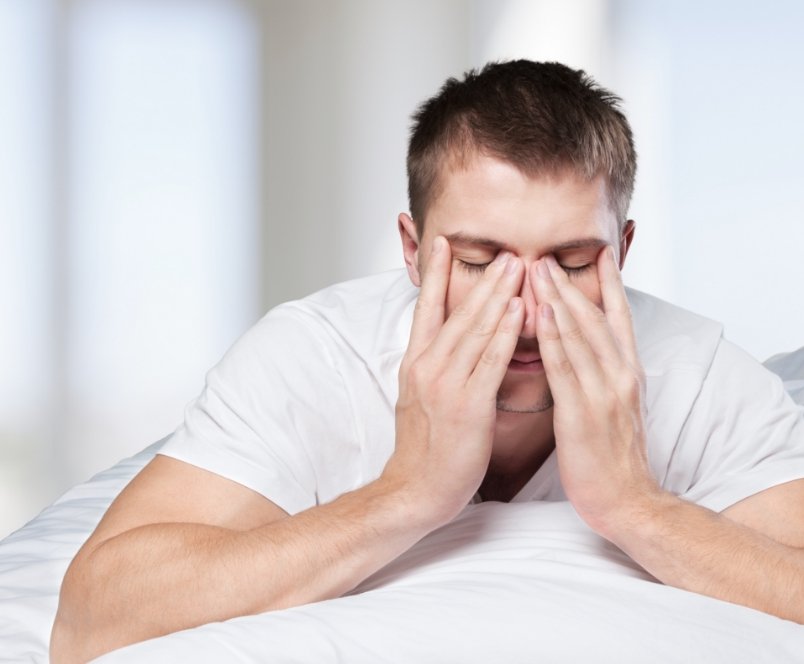
Did you know that over 20 million Americans are currently dealing with sleep apnea? While that number is certainly large, it is a low estimate, because about 80% of cases are actually undiagnosed. Beyond making someone feel exhausted all the time, sleep apnea has been shown to increase risk for virtually every type of mortality you can think of, but thankfully, it is very treatable. Our doctors are double board-certified dentist who provides sleep apnea care. Keep reading to get answers to important questions like, "What is sleep apnea?" from our Tulsa, OK specialty dental team.
Sleep Apnea Basics

When someone has sleep apnea, their breathing becomes interrupted several times throughout the night, and they may even completely stop for about 10 seconds. This can occur up to 100 times per hour in severe cases! When this happens, the body has to partially wake up to restart normal breathing, and this throws off the sleep cycle.
As a result, a person does NOT get the deeper, restorative type of sleep that the body and mind need to feel refreshed the next day. Also, these constant interruptions are very stressful for the body, leading to high blood pressure that can last for many hours even after the person has woken up.
Types of Sleep Apnea
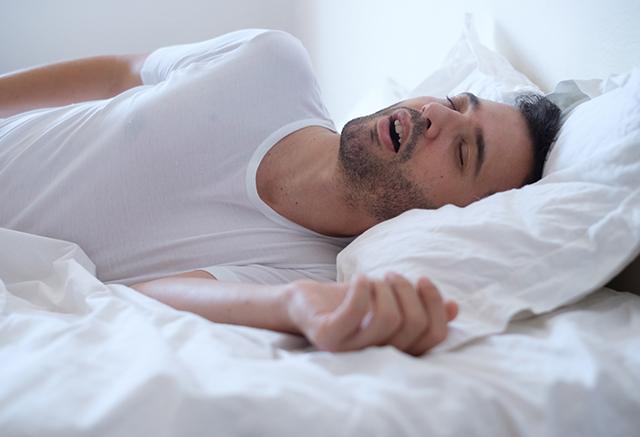
Sleep apnea is a common sleep disorder characterized by interrupted breathing during sleep, impacting the quality of rest and overall health. Below, we explore the different types of sleep apnea to help you better understand the differences between them. Knowing how they differ is crucial for early detection and personalized treatment plans. Simply click on the button below to learn more!
Obstructive Sleep Apnea

Obstructive sleep apnea (OSA) is the most prevalent form of sleep apnea, estimated to impact between 10% and 30% of adults in the United States. Patients with OSA experience restricted airflow through the airway during sleep due to relaxed muscles and tissues, leading to airway constriction or collapse. Consequently, recurrent partial awakenings occur to restore breathing, resulting in fragmented sleep and reduced overall refreshment.
Learn More About Obstructive Sleep Apnea
Central Sleep Apnea
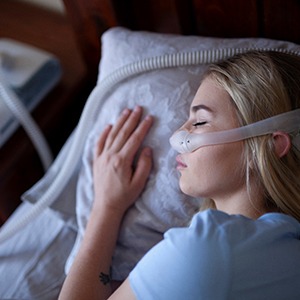
Central sleep apnea (CSA) is a rarer form of sleep apnea, impacting less than 1% of individuals. Those with CSA experience interruptions in breathing during sleep, characterized by halted, slowed, or shallow respiration. The root cause lies in a breakdown of communication between the brain and the respiratory muscles, leading to disrupted breathing patterns.
Learn More About Central Sleep Apnea
Complex Sleep Apnea

When a person with obstructive sleep apnea (OSA) experiences central sleep apnea (CSA) symptoms following positive airway pressure (PAP) therapy initiation, it’s referred to as complex sleep apnea. Although PAP therapy effectively reduces breathing disruptions caused by airway obstructions, complex sleep apnea entails increased interruptions related to brain-muscle communication for breathing. Understanding this subtype is essential to address the unique challenges it poses, ensuring more targeted and successful treatment for improved sleep health.
What Causes Sleep Apnea?

There are generally two types of sleep apnea: obstructive sleep apnea (OSA) and central sleep apnea (CSA). While the latter involves a neurological issue that doesn’t send the proper signals for your body to breathe while sleeping, the former is more structural, as the mouth and throat become blocked throughout the night. In rare cases, some patients can have a combination of the two known as complex sleep apnea. However, you may be wondering about the factors that can increase the risk of these issues occurring at all. Here are some of the causes of sleep apnea to watch out for.
Sleeping Position
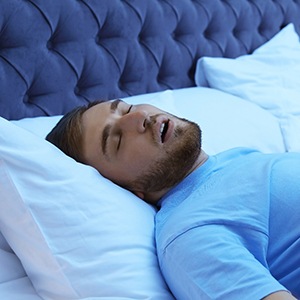
One of the simplest reasons you might struggle with or experience obstructive sleep apnea is due to the way you lay down when sleeping. Since your airway becomes blocked due to the muscles in your mouth and throat relaxing too much, resting on your back and facing the ceiling can increase your chance of obstructing your breathing. To avoid this, you can try sleeping on your side or stomach, which will keep your airway from getting closed off as often.
Excessive Weight

Around 45% of people with obesity may be affected by sleep apnea, according to the Obesity Medicine Association. This is because fat deposits within the neck, tongue, and palate can cause the airway to tighten and become smaller. By closing up, it can end up increasing the risk of collapse and affecting sleep. While this can be problematic, some studies have shown that even a 10% decrease in body weight can help decrease the severity of sleep apnea by up to 20%! This is another reason why you’ll want to practice moderate exercise and keep a well-balanced diet moving forward.
High Blood Pressure (Hypertension)
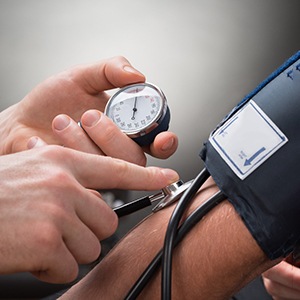
Whenever a person isn’t breathing correctly, their oxygen levels can begin to plummet, which sends an adrenaline signal from the brain that makes the blood vessels tighten. This is designed to increase the flow of oxygen to both the brain and heart. However, this effect can end up continuing even while you’re awake and breathing properly, resulting in hypertension. If left unaddressed, it can allow for a repeating cycle of high blood pressure and obstructive sleep apnea.
Alcohol & Tobacco Use

Similar to sedatives, alcoholic beverages can end up relaxing your throat muscles during sleep, which can increase the likelihood of your airway being obstructed. On the flip side, those who smoke tobacco have a higher chance of experiencing sleep apnea due to inflammation in the upper airway. Not only does this affect breathing, but it can also impact your brain and prevent it from sending the correct signals to the muscles that control your breathing.
Family History of Sleep Apnea

If one of your parents or other family members has sleep apnea, then you can be at risk of the same issue later on. This can be due to how your airway is shaped as well as your cranial facial traits that were inherited from your relatives. If you have sleep apnea due to your genetic structure, you’ll likely require surgery to treat the abnormality.
Sleep Apnea Symptoms
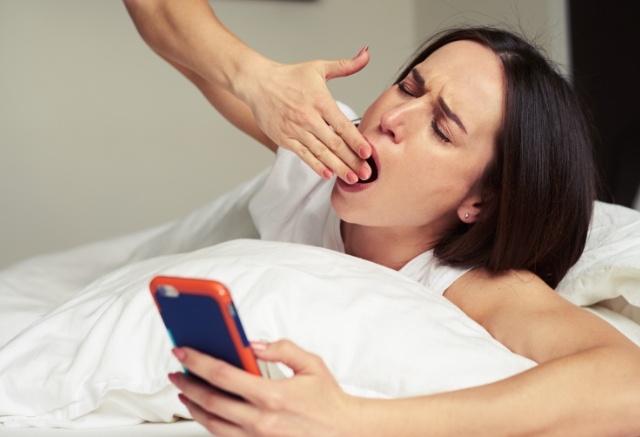
When a person has sleep apnea, various symptoms can manifest both while they are asleep and awake. Although not every person experiencing these signs will have sleep apnea, it’s still important to be aware of the indications. This way you can visit a sleep expert for the proper treatment so you can get the proper rest you deserve.
Loud Snoring

This condition often happens due to a narrowing airway. This makes snoring a typical side effect of sleep apnea, as your airways may be partly or entirely blocked by tissues in your throat that periodically collapse during rest. Additionally, this symptom can also be due to a lack of nerves signaling your body to open your airways properly.
Chronic Fatigue

Oftentimes, sleep apnea disrupts your sleep cycle and can cause you to not get a full eight hours of rest. Whenever you stop breathing, your body will usually wake you up to get some air. For this reason, sleep apnea can end up keeping you from spending enough time in deep sleep, resulting in you feeling tired and drowsy throughout the day. Though this may not seem like a dangerous situation, those with chronic fatigue can be at a higher risk of falling asleep at inconvenient times, such as driving.
Frequent Sore Throats/Headaches
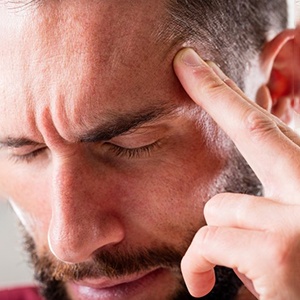
Due to a propensity for snoring often from sleep apnea, those suffering from this disorder can end up with a sore throat by breathing through their mouth. Furthermore, those who don’t get uninterrupted rest can also wake up with a headache in many cases. Though these conditions aren’t dangerous, they may be signs that you aren’t getting enough sleep.
Difficulty Focusing

This symptom is mainly seen in children who are experiencing this disorder. In some cases, this can appear similar to attention-deficit/hyperactivity disorder, but it’s due to disrupted rest. However, if you tend to have difficulty throughout the day and experience insufficient rest, this could be a sign to visit a sleep expert.
Sexual Dysfunction

This symptom can prevent someone or a couple from feeling satisfaction from sexual activities. Without enough rest, your other bodily and neural capacities can start to experience some complications, including sexual desire. To avoid issues or strains in the relationship, you’ll want to consult a professional to help resolve the underlying problem, which may include sleep apnea. Based on your symptoms, your doctor may recommend a sleep study to assess your breathing patterns and determine a solution for improving your rest.
How is Sleep Apnea Diagnosed?
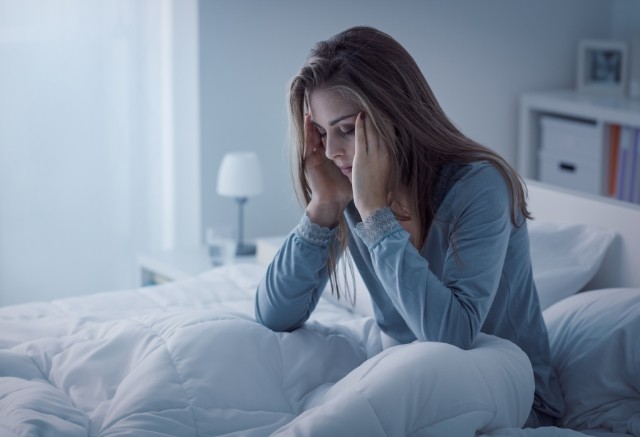
The only way that sleep apnea can be diagnosed is through a sleep test, in which a patient spends the night wearing a device that monitors their breathing, heart rate, brain activity, and other vital signs so they can be evaluated by a licensed sleep doctor. Based on the readout produced by the test, the doctor can determine if the person has sleep apnea and what severity it is (mild, moderate, or severe).
How Sleep Apnea Can Be Treated
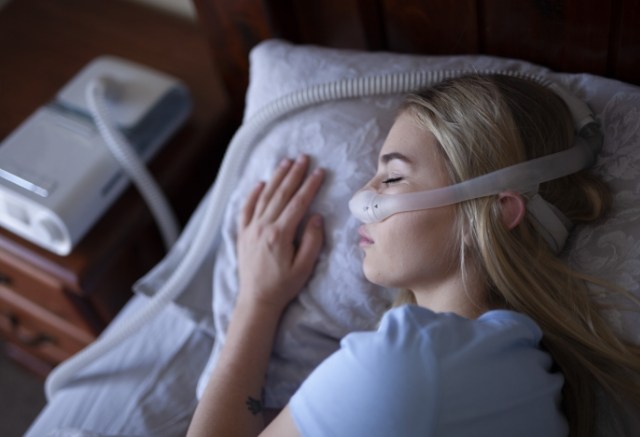
The most popular type of sleep apnea treatment is Continuous Positive Airway (CPAP) therapy, in which a patient wears a mask to bed that is connected to an air pump. This creates a steady flow of oxygen into the throat that prevents it from closing. While effective, it isn’t exactly comfortable, so many patients stop using the device within a year.
Fortunately, our doctors can offer a more comfortable alternative with oral appliance therapy. All a patient has to do is wear a custom-made mouthguard to bed that slightly shifts the lower jaw forward, which enables the airway to remain open for easier breathing.
Beyond clinical care, lifestyle changes such as losing weight, quitting smoking, and limiting alcohol consumption can also drastically reduce sleep apnea symptoms.
How a Dentist is Able to Treat Sleep Apnea
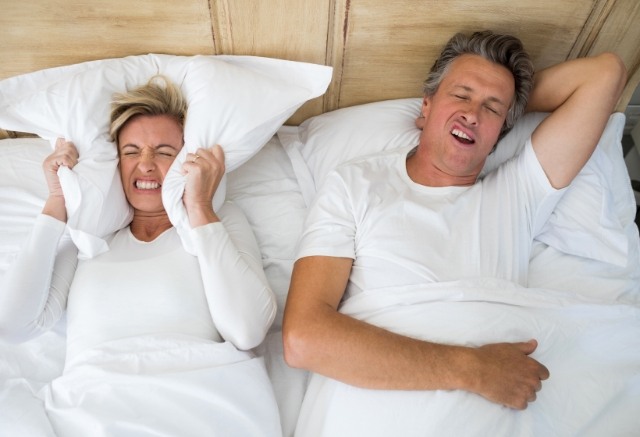
In our doctors experience, about 80-90% of people who snore also have obstructive sleep apnea (OSA). In many cases, this is because the tongue relaxes during sleep and slides back, closing off the airway. As the tongue starts to fall back and partially closes the airway, this is what creates the noise of snoring.
When the airway has been fully blocked by the tongue, the patient is no longer receiving air, usually for more than 10 seconds at a time. This type of apnea episode can happen anywhere from five to 100+ times an hour! Each episode disrupts the sleep cycle and causes the person to move out of deeper sleep into a lighter state to get a breath of air. All of these disruptions lead to the person feeling tired when they wake up and like they didn’t rest even if they spent eight or more hours in bed.
A dentist (specifically a sleep dentist like our doctors) is ideal for treating this condition because they can make an appliance that positions the lower jaw slightly forward a few millimeters. The tongue is attached to the lower jaw, so when the jaw moves forward, that pulls the base of the tongue away from the airway and allows air to flow so the person can breathe all night long. Without the disruptions, the person actually gets restful and regenerative sleep at night.
Snoring is More than Just Annoying

Frequent snoring is one of the most common and telltale signs of sleep apnea, but it’s important to point out that NOT everyone who snores has the condition. However, if a person typically snores and experiences other sleep apnea symptoms like daytime fatigue and chronic morning headaches, then it is highly recommended they receive a sleep test or at least get a screening from our doctors.
Is Sleep Apnea Therapy Covered by Insurance?

Yes, sleep apnea therapy can often be partially covered by medical insurance as well as plans like Medicare. In the case of oral appliance therapy, even though the treatment is being provided by a dentist like our doctors, a patient will need to use medical insurance to help pay for it, not dental insurance. This is because the appliance is being used to address a medical issue as opposed to a dental one.
Consequences of Sleep Apnea

Sleep apnea poses grave cardiovascular risks, elevating blood pressure and increasing the chances of heart disease, heart attacks, and strokes. Moreover, the lack of restful sleep can lead to impaired concentration and fatigue, escalating the risk of car accidents. Medication complications and surgical risks are also compounded by sleep apnea.
Additionally, its association with diabetes highlights its significant impact on health, potentially leading to a pre-diabetic state. Studies also suggest a link between sleep apnea and erectile dysfunction in men. Understanding these consequences is incredibly important for effective management and prevention.
Learn More About Consequences of Sleep Apnea
Understanding the Cost of Sleep Apnea Treatment

We’ve answered a lot of questions about sleep apnea and how we can help our patients overcome it on this page, but there is something important that you’re likely still wondering about: How much does sleep apnea treatment cost? Because there are multiple methods, and each one has to be customized, it can vary from person to person. But, the information below will give you a much better understanding of the factors that will influence what you’ll pay (as well as how you can keep things affordable).
Does Dental Insurance Cover the Cost of Sleep Apnea Treatment?

It’s important to point out that sleep apnea is considered a medical issue, so no matter what type of treatment you get, it can only be covered by medical insurance. This is even true if you receive care from a sleep dentist!
Fortunately, our practice is happy to work with all types of medical insurance providers, including Medicare, to help our patients gain access to the life-changing services they need.
Factors That Affect the Cost of Sleep Apnea Treatment

- Type of Treatment: CPAP therapy and oral appliance therapy are the two most popular forms of sleep apnea treatment, and there are many options for each, all of which come with a different cost.
- Sleep Test: A patient needs to be diagnosed with sleep apnea before there can be any talk about solutions. This is a separate cost from the CPAP or appliance itself.
- Insurance Coverage: While many medical insurance plans will help pay for sleep apnea treatment, the specific rate is different from provider to provider.
Treat Your Sleep Apnea Now to Improve Your Health

When paying for sleep apnea treatment, a key thing to keep in mind is that you’ll not only be improving your sleep and energy level day to day, but it can also drastically lower your healthcare costs over time.
The risk for high blood pressure, stroke, and heart attack drastically increases for patients with sleep apnea. The same can be said for diabetes, obesity, and even motor vehicle accidents. Treating any of these can require tens of thousands of dollars each year, but you can take a big step toward avoiding them just by getting your sleep under control.
Making Sleep Apnea Treatment More Affordable

If you don’t have medical insurance or qualify for Medicare, you’re not out of luck. We also give patients the option to finance their treatment if needed so they can get what they need today and pay gradually over time. We offer plans that cover a wide range of schedules and feature low-to-no interest, plus there are NEVER any hidden fees. If you would be interested, just let our team know at your consultation, and we’ll help you get signed up.
